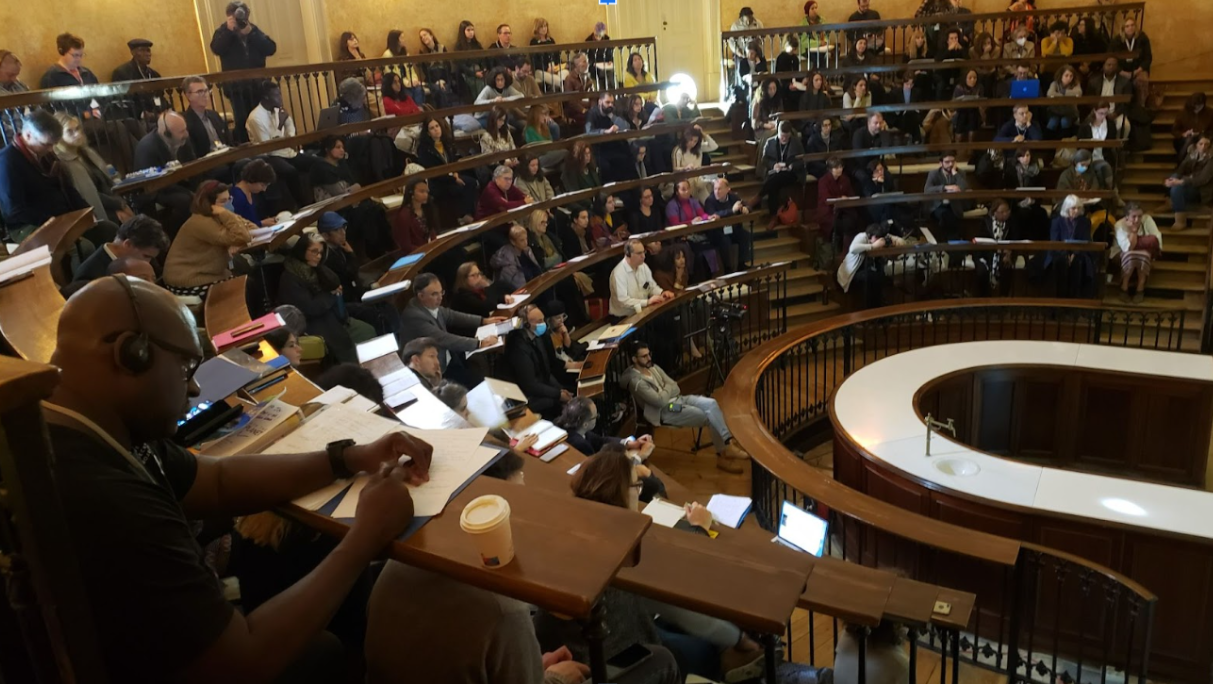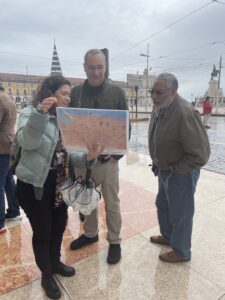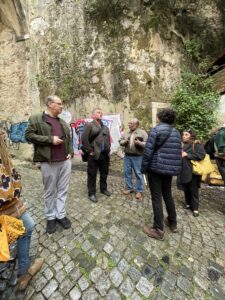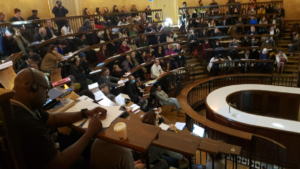Portugal
October 5, 2023

Symposium on “Reckoning with Race: The Social Memory of the Slave Trade”
Co-Organized by SWP with the Museum of Natural History of the University of Lisbon in Lisbon Portugal, January 9th 2023.
Beginning in 2013, members of the Slave Wrecks Project team began collaborating with Portuguese colleagues to conduct research in several Portuguese archives, focused on investigating the story of the slave ship São José Paquete d’África, whose owner was a rich Lisbon merchant. In 2020, SWP began to pursue new angles and sources through a new collaboration developed with CHAPAS, a group of avocational insurance history investigators from that industry. This research has since evolved into a broader investigation that has started to trace the roles of Portuguese slave traders—including the São José’s owner and his network of contemporaries—in the founding of the maritime insurance industry and other financial institutions across the Portuguese-speaking world. SWP and collaborators are also researching the role of the slave trade in financing Lisbon’s reconstruction after it was devastated by an earthquake in the mid-18th century.
Concurrent with this groundbreaking project, other opportunities for collaboration with other Portuguese partners have also emerged from research on the São José. An online conference was co-organized in 2022 by the City Museum of Lisbon and SWP on the research about the São José and its story, which connects Portugal, Mozambique, South Africa, and Brazil—and provides a critique to longstanding narratives that have prevented a reckoning with this difficult past in Portuguese public memory.
Subsequently, SWP has worked closely with a growing coalition of Portuguese institutions to support their efforts to challenge and change these public and scholarly narratives. At the annual meeting of the Society for Historical Archeology held in Lisbon In January 2023, SWP organized a suite of scholarly panels and discussions in a first-ever effort to assess the state of and plot future direction for the Maritime Archeology of the Slave Trade.
Throughout 2023, the SWP network has continued to respond to the enthusiasm generated by these events, participating in discussions about a range of other potential collaborations with an informal but growing coalition of Portuguese institutions, including the Museum of Natural History and Science of the University of Lisbon (MUHNAC), the City Museum of Lisbon, Acesso Cultura, Fundação Calouste Gulbenkian, and the Luso-African community association Batoto Yetu Portugal. These discussions have already started to generate new activities including a pilot training program for Portuguese secondary school teachers and museum educators on how to teach the difficult topic of slavery and the slave trade that is being organized in collaboration with the Gulbenkian during the summer of 2024. This workshop, Difficult Histories, Difficult Legacies, completed its second edition in July 2025.
SWP is also advising and providing technical assistance to the City Museum of Lisbon in its plans to launch the first-ever major museum exhibition on the slave trade in Portugal in 2025 during the fiftieth anniversary of the end of Portuguese decolonization in Africa. This exhibition will draw upon the SWP’s research on the São José Paquete de África, including emergent findings on the slave trade’s specific ties to and influence on Lisbon.
These evolving initiatives represent SWP’s first significant collaborations with European institutions. SWP continues to foster and collaborate with European institutions with the globally shared history and enduring legacies of the slave trade. The SWP network will continue to explore how it can develop partnerships with relevant institutions on research-driven initiatives that can raise awareness and catalyze difficult conversations about Portugal’s past, cultural heritage, national identity, diversity and inclusion, and racism, and seeks to foster transformative practices in Portugal, and across Europe.






